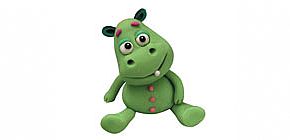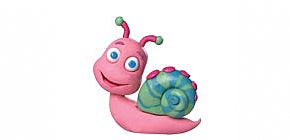Eating Right & Keeping Your Infant Healthy
 |
|
The wealth of products in the supermarkets and pharmacies can at times be overwhelming. A wide variety of infant formula, foods, nutritional supplements, vitamins and homeopathic medications are just some of the products parents believe they should be giving their children. When choosing products for infants, parents often rely on recommendations made by friends, as well as on advertisements, but before you add another product to your infant’s diet, it’s important to know which products are not recommended for little ones and which should would be beneficial to their growth and development.
Does my infant ingest enough vitamins?
In order for your infant to ingest all the vitamins and minerals they need to grow normatively, their diet should include the following products:
● Breastmilk or infant formula: Breastmilk contains all the ingredients your infant needs during their first six months of life. It comprises all of the major food groups and strengthens your infant’s immune system. The infant formulas available on the market serve as a good alternative to breastmilk.
● Pureed fruits and vegetables: Pureed fruits and vegetables contain many nutritious ingredients. You can buy ready-made purees or blend cooked vegetable yourself, at home.
● Water: Be sure to give your solids-eating infant water to drink, in addition to breastmilk or formula. It is recommended to boil the water before drinking, until your infant reaches their first birthday.
● Vitamin D and iron supplements: Give your infant a Vitamin D supplement every day from birth, and an iron supplement every day from four months. Administer the dose recommended by the Health Ministry.
The stages of infant development, particularly in the first months of life, are critical. It is important to maintain proper nutrition, rich in vitamins, particularly at this stage. Solid foods, such as fruits and vegetables, are rich in vitamins and help your infant develop. According to the Health Ministry’s recommendations, infants should begin eating solids at the age of six months.
Also important for you to know: there is no need to give your infant fruit drinks. When you can add a little bit of natural fruit juice to their diet, beware of giving them sweet (even natural) drinks in large quantities, as they can cause diarrhea, cavities and a lack of appetite.
Which medications should I give my infant?
From the first months of their lives, infants suffer from a myriad of unpleasant sensations, including gas and teething, and in general they are more vulnerable to various illnesses. Today, there are many medications available to treat these phenomena, including natural, or alternative medications. The Healthy Ministry has put out recommendations and warnings regarding these products as well. Before you go out and buy medications and solutions for your infants, it is important that your read their ingredients and avoid purchasing products that contain the following:
● Alcohol: Some infant syrups and solutions contain alcohol - the Health Ministry recommends avoiding giving these to infants.
● Sugar: It is recommended to avoid giving your infant foods or drinks that are rich in sugar, as they can cause cavities and reduce your infant’s appetite for more nutritious foods. There are also certain sugars found in solutions that are not recommended for infants, including: sucrose, glucose and fructose.
● Active ingredients: Infants are particularly sensitive to active ingredients found in herbal infusions, or products made from medicinal plants, likely to cause them to experience unpleasant side-effects.
Avoid medications that are rich in sugar and alcohol!
Most parents are unaware that various homeopathic medications are based on alcohol and sugar, both not recommended for infant ingestion. Some of these medications treat infant gas (colic), but are not safe for use according to the Healthy Ministry, as they can cause your infant to stop breathing, seize and experience other side-effects.
How to effectively and safely treat infant gas
Medications that treat infant gas have scientifically been proven as safe and effective. When you go to the pharmacy, don’t forget the Health Ministry’s recommendations; be sure to buy medications that do not contain alcohol or sugar. This way, you can know that you’ve provided your child with the best, safest treatment.
Prevent it you cannot, but you can definitely lower the risk of infants and children suffering from diarrhea if you vaccinate, maintain proper ...
There are quite a few misperceptions about infants and constipation. The toddler’s intestines work slower than those of an adult, and it can therefore ...
Keeping your infant healthy isn’t always an easy task: the variety of foods, nutritional supplements and medications is tremendous, and selecting the ...


.jpg)
.jpg)
.jpg)
.jpg)



.jpg)
.jpg)
.jpg)
.jpg)

.jpg)


.jpg)
.jpg)
.jpg)
Contact us